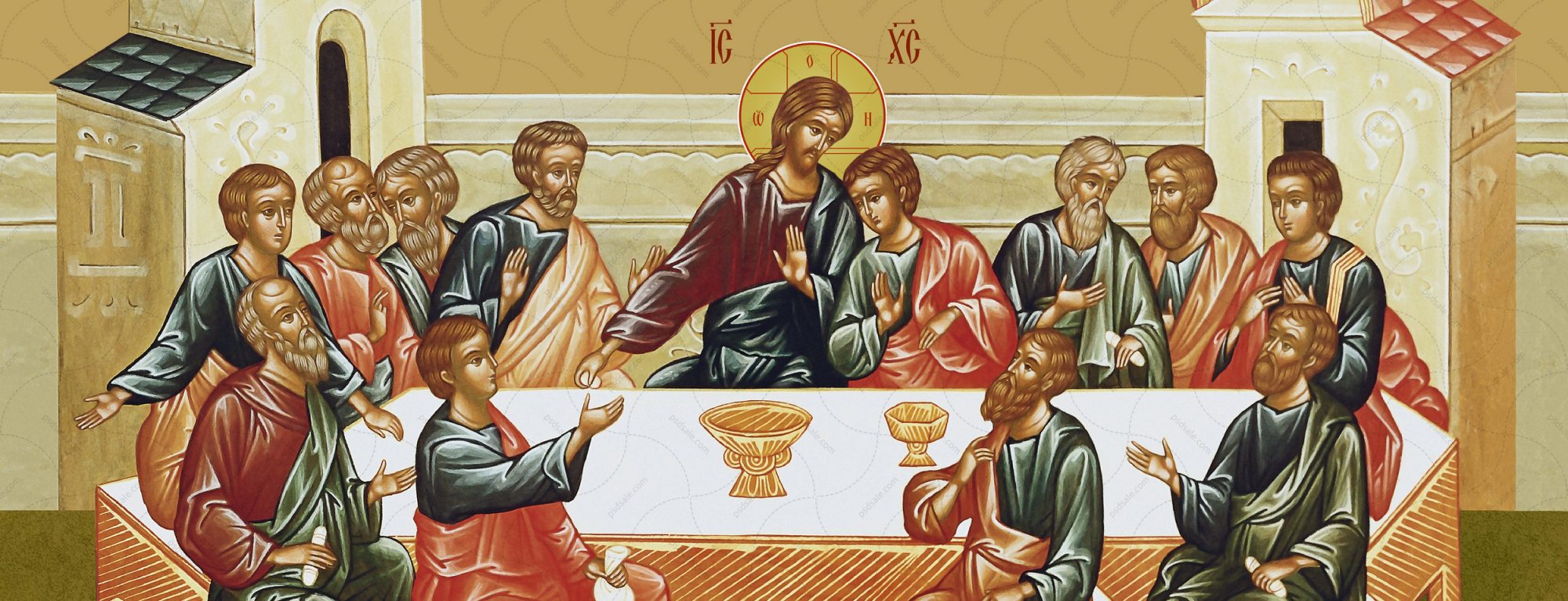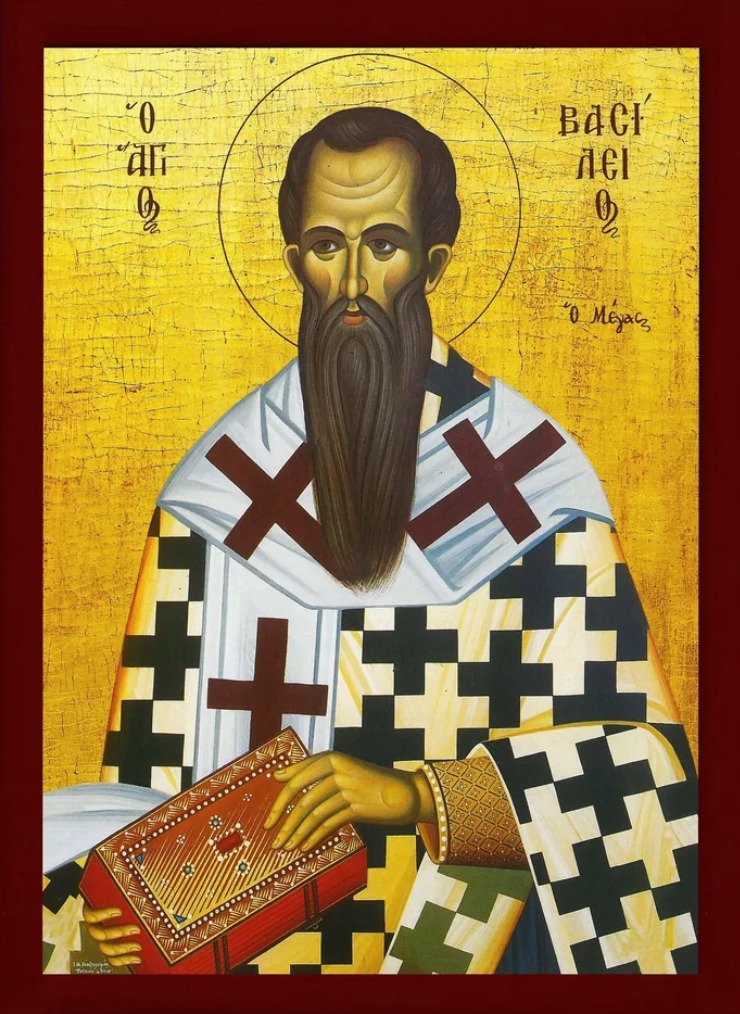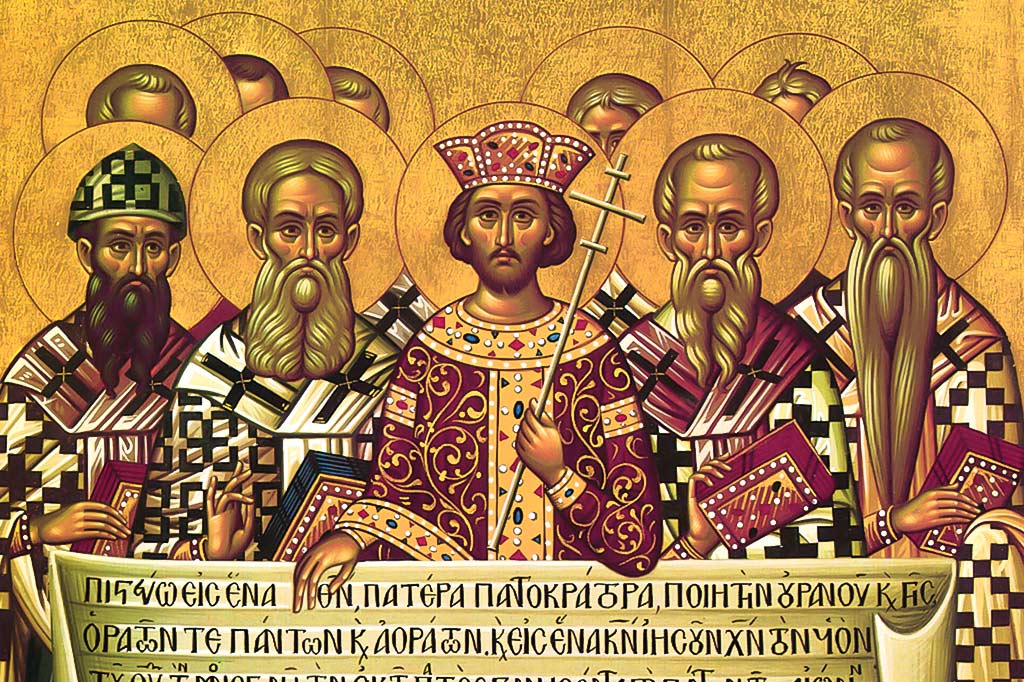Predstavujeme cirkevných otcov: Bazil Veľký
Život: Narodil v Cézarei v Kapadócii v Ázii v roku 330 v rodine, ktorej stará matka z otcovej strany, Makrína, bola svätá a starý otec z matkinej strany bol umučený. Medzi jeho desiatimi súrodencami boli Gregor z Nyssy a Peter zo Sebasty. Navštevoval rétorické štúdiá v Cézarei, Konštantínopole a Aténach. V roku 356 sa vrátil do svojej vlasti a po určitom období venovanom rétorike odišiel do Egypta, Palestíny, Sýrie a Mezopotámie, aby spoznal najslávnejších askétov týchto oblastí. Po návrate rozdal svoj majetok chudobným a odišiel do Novej Cézarey. V roku 358 ho navštívil Gregor z Nazianzu a spoločne zostavili Filokáliu a dve Pravidlá, ktoré Bazila zasväcujú ako zakladateľa gréckeho mníšstva. Euzébius Cézarejský ho v roku 364 presvedčil, aby sa stal kňazom, a po jeho smrti v roku 370 ho Bazil nahradil vo funkcii biskupa eparchie. Vyvíjal impozantnú činnosť, zakladal diela venované pomoci ľuďom na okraji spoločnosti a platne sa postavil proti cisárskym tlakom, ktoré chceli, aby sa pridal k arianizmu. Veľmi znepokojený vnútornými rozpormi v Cirkvi sa pokúšal presvedčiť Rím, aby sa stal sprostredkovateľom v spore medzi Meletiom a Paulínom v Antiochiii, ale rímska hierarchia nechcela zasiahnuť do konfliktu, hoci Bazil tvrdil, že existuje spoločenstvo vo viere. Zomrel v prvý deň roku 379.
Diela: Spisy Proti Eunomiovi a O Svätom Duchu sú plodom jeho horlivej túžby vyvrátiť arianizmus. Jeho Etika a dve Mníšske pravidlá patria k asketickej literatúre. Napísal aj Napomenutie duchovnému dieťaťa, Rozpravu k mládeži o tom, ako profitovať z pohanskej literatúry, rôzne homílie, kázne a zbierku 365 listov, z ktorých mnohé sú adresované jemu. Nemenej dôležitá je jeho reforma cézarejskej liturgie, ktorá sa dodnes používa v niektoré predpísané dni v cirkvách byzantského obradu.
Teológia: Teologické myslenie Bazila Veľkého sa v zásade točí okolo obhajoby postojov Nicejského koncilu (325). Ako verný priateľ Atanáza dosiahol to, čo Atanázovi nebolo dopriate, a to návrat semiariánov do Cirkvi a jasný význam slov usia a hypostasis. Atanáz používal oba termíny a dával im rovnaký význam, ale počnúc Bazilom sa začalo hovoriť o jednej usii (podstate) a troch hypostázach. Mimoriadne dôležité je aj zavedenie používania mníšskej spovede, ktorá sa postupom času zmení na ušnú spoveď (K. Holl ich v skutočnosti stotožňuje a ich pôvod pripisuje Bazilovi). Bazil vo svojom kánonickom liste zdôrazňuje existenciu štyroch tried kajúcnikov: tých, ktorí smútia (nachádzajú sa mimo chrámu), tých, ktorí počúvajú (mohli byť prítomní pri čítaní Svätého písma a kázni), tých, ktorí sa klaňajú (zúčastnili sa na modlitbe na kolenách), a tých, ktorí stoja (zúčastnili sa na slávení, ale bez možnosti prijať Eucharistiu).
Zdroj: C. V. MANZANARES: Dizionario sintetico di patristica 1991. Z taliančiny preložil o. Ján Krupa
Svätý Ján Zlatoústy (13. november)Svätý Ján Klimak (ca. 579 – ca. 659)


